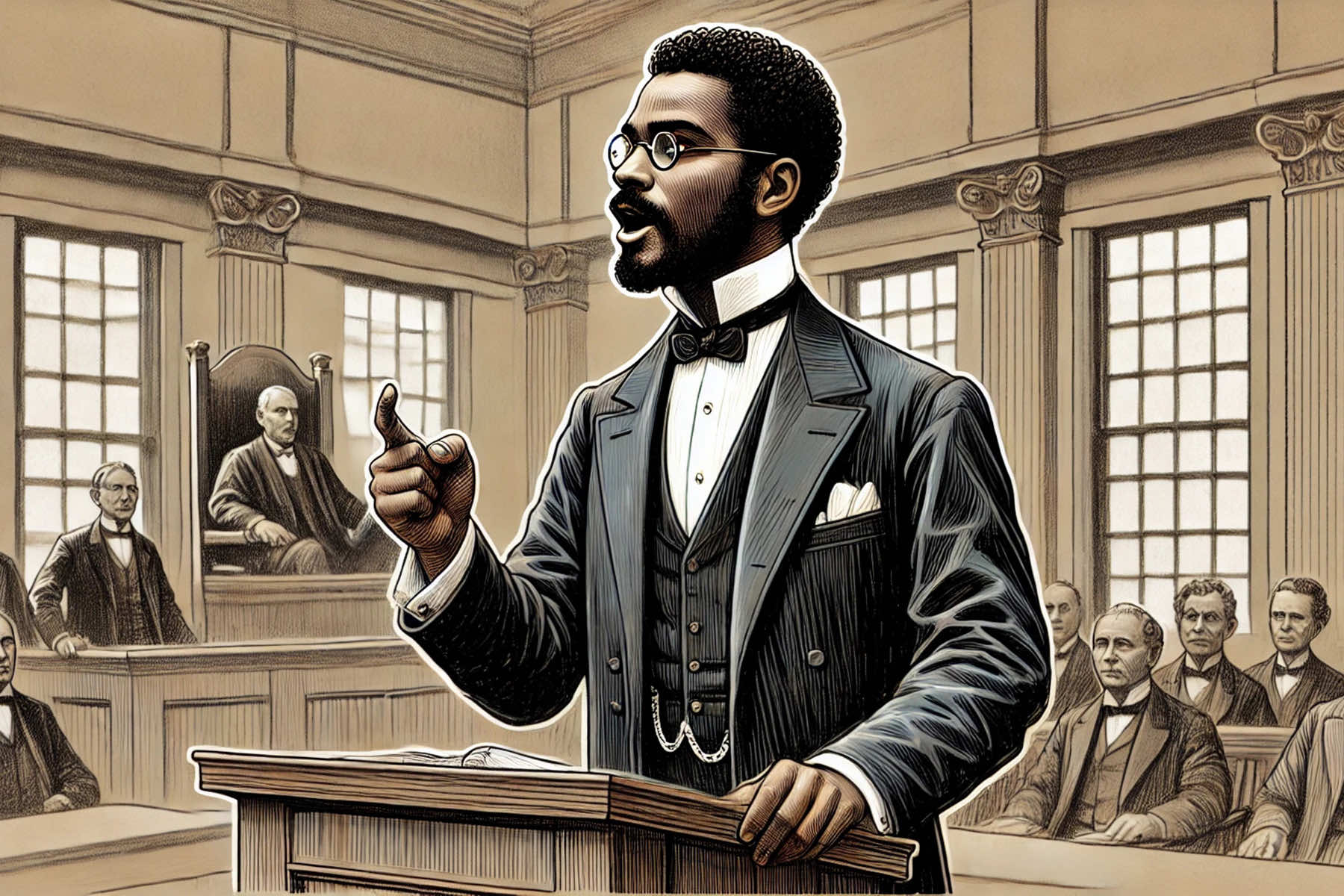
Ezekiel Gillespie, a 19th-century civil rights pioneer who secured Black suffrage in Wisconsin, has entered renewed discussions as federal protections come under review in Donald Trump’s second term.
Born into enslavement in Tennessee, Gillespie resettled in Milwaukee by the mid-1850s and challenged local officials who denied him the ballot. His 1866 legal victory confirmed Wisconsin’s constitutional protection of Black men’s voting rights, illustrating how state-level action can bolster civil liberties when national policies shift.
Gillespie’s case began with his effort to vote despite objections at the polls. Although Wisconsin had passed an amendment in 1849 to recognize Black suffrage, enforcement was inconsistent. Gillespie sued the Milwaukee board of election inspectors, prompting the state Supreme Court to uphold his right to vote.
The ruling weakened arguments used to justify poll-based discrimination, encouraging more African Americans in Milwaukee to cast ballots. While discrimination persisted, Gillespie’s stand underscored that a clear, existing legal framework could defeat barriers imposed by local authorities.
Today, community leaders cite Gillespie’s example as they respond to efforts from the Trump administration that federal oversight of elections and discrimination claims may be scaled back. Some Wisconsin officials fear tighter voting regulations or reduced investigation of bias complaints, leading them to examine how state constitutions might shield minority rights.
Gillespie’s victory demonstrates the value of pressing local institutions to follow legal mandates, even when social attitudes lag behind written law. Records suggest Gillespie worked as a messenger and clerk before filing suit. Though few details of his life remain, his success reshaped local political participation.
By enforcing suffrage rights that had existed for years on paper, Gillespie forced Milwaukee’s election officials to comply with constitutional standards. Historians note that his case, though overshadowed by larger national stories, stands as a turning point in Wisconsin’s civil rights history.
Since Trump’s reelection, activists have invoked Gillespie’s story while encouraging voter education. They highlight similarities between his struggle — facing reluctance from poll workers — and contemporary concerns that regulatory changes might disproportionately affect communities of color.
Organizers emphasize that vigilance is essential to ensure people’s rights are acknowledged in practice, rather than merely inscribed in legal statutes. Scholars of 19th-century legal history view Gillespie’s court battle as a prime example of how local litigants can spur broader change.
By compelling judges to affirm constitutional provisions, Gillespie reinforced the role of state courts in protecting civil liberties. His lawsuit expanded civic engagement for Black residents of Milwaukee, who found fewer barriers after the decision.
That momentum, while limited by continuing prejudice, helped solidify the role of African American voters in local politics.
Legal experts say Gillespie’s precedent resonates today because it confirms that individuals can trigger substantive shifts in policy — even if public officials initially resist. With the Trump administration reconsidering federal approaches to civil rights, Wisconsin’s experience shows that a determined lawsuit can prompt state-level enforcement.
In Milwaukee, civic organizations run training sessions on the history of voting rights. Organizers maintain that Gillespie’s success reflects the power of direct action. They remind participants that local authorities sometimes need to be pressed by the courts to uphold existing laws, and that community involvement is a crucial step in that process.
Though the era of poll taxes and overt segregation has passed, they say the principle of legal assertiveness remains relevant.
While the scope of modern civil rights encompasses multiple dimensions, the essential lesson of Gillespie’s struggle is that rights demand enforcement. Absent persistent advocacy, even constitutional guarantees can be ignored.
The memory of Gillespie’s case, therefore, resonates with those who worry that without robust federal policies, minority communities may face mounting race-based administrative hurdles.
Gillespie’s personal motivations remain unclear, but he evidently recognized that Wisconsin law was on his side. By rejecting a poll worker’s refusal, he forced judicial scrutiny of a dormant constitutional clause.
In doing so, he challenged a prevailing culture of complacency that had allowed local officials to flout an amendment ratified years earlier. That same dynamic, between enacted policy and local unwillingness, plays out in current debates over the extent of states’ rights.
Gillespie’s case also reminds legal scholars that even widely celebrated constitutional principles can require litigation to become real. In recounting his story, experts frequently note how a state Supreme Court ruling, fueled by one man’s protest, recalibrated attitudes toward the Black electorate in Milwaukee.
That recalibration did not erase racism, but it constrained overt discrimination at polling sites. Similarly, contemporary civil rights disputes often hinge on whether written protections will be enforced in practice. While parts of Gillespie’s biography remain shrouded, the significance of his achievement endures.
As Trump’s autocratic administration slashes policies related to voter registration, affirmative action, and federal oversight, leaders in Wisconsin watch closely for any reverberations at the state level. Though modern challenges differ in scope, the principle that Gillespie faced still persists.
In an era marked by declining federal commitments, Gillespie’s stand underscores that civil rights struggles often unfold most decisively at the local level. Whether or not states replicate his success depends on the strength of their constitutions, the willingness of their courts, and the persistence of everyday citizens.
At a time when national directives on civil rights are rolling back to the Jim Crow era, Gillespie’s example highlights the enduring power of grassroots legal challenges to uphold essential liberties.
© Photo
ChatGPT/Dall-E














